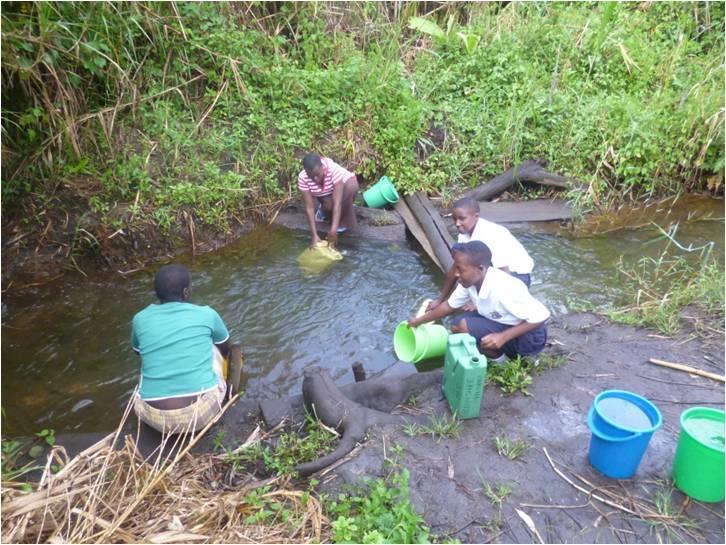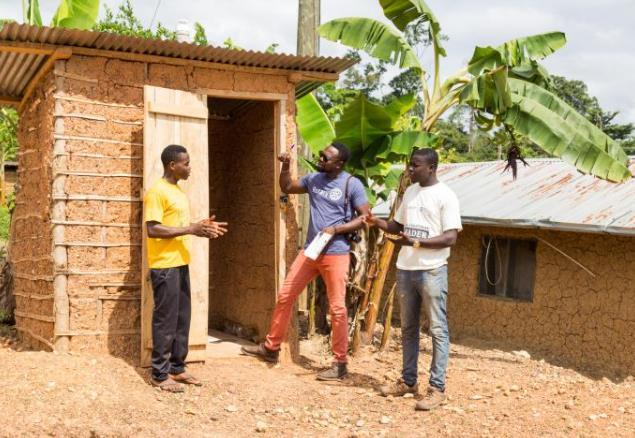
3 minute read
WASH RAG

Click here to read about projects that are looking for partners.
Advertisement
• Visit us at: WASH-RAG.org • View our videos at: WASH Rotary Action Group YouTube Channel • Follow us on Facebook at: WASH Rotary Action Group
Story from Kabarole, Uganda
Sally and Keith Halsey spent two years working as volunteer lecturers at Canon Apolo Primary Teachers' College, Fort Portal, Uganda. While they were there the Rotary Club of Saltash, Cornwall, UK, supported them financially with many projects which supported the college and the local community. They worked in partnership with the Rotary Club of Kabarole, Uganda.
One of the projects was to repair a local medical clinic. They worked together to put on a new roof, plaster the walls, and pour a cement floor over the existing earth floor. While Sally and Keith were living at the College, they had firsthand experience of having to cope without water. During the dry season, December to March, it was common for the students to have to walk to the local swamp to collect water for their daily needs, such as washing their clothes and bathing. But on many occasions, they would have to drink this water from the swamp stream, which was the same water used to wash their motorbikes. This caused bad stomach upsets and skin conditions.
A Rotary Global Grant was applied for with funding from Saltash and a Canadian Rotary club, and after five years of perseverance, in 2021 the college now has a water pump that is

powered by Solar Panels. This pumps water from a small stream (not the swamp) which is filtered and then stored in a huge water tank. The project also included a flushing toilet block with a shower. The Rotary Club of Saltash Rotary Club received a letter of appreciation from the College Principal telling them how this project has transformed the lives of the students and staff. The electricity bill has been cut by 45% due to the Solar Panels.
Teaching WASH
It takes more than installing sanitation facilities for a WASH project to succeed in the long term. It’s also important to cultivate healthy habits. Good hygiene practices can reduce diseases such as cholera, dysentery, and pneumonia by nearly 50 percent. Washing hands with soap can save lives.
More than 4.5 billion people live without a safe toilet, the U.N. says. A lack of toilets leads to disease and also keeps some girls from going to school. In Ghana, Rotary and USAID projects at schools are leading to fewer days missed due to illness or menstruation.
Photo by Awurra Adwoa Kye
The Rotary Club of Box Hill Central, Victoria, Australia, facilitates Operation Toilets, a program that builds toilets and delivers WASH education to schools in developing countries including India and Ethiopia.
The group constructs separate facilities for boys and girls to ensure privacy, and Rotary members teach students how to wash their hands with soap. Workers at each school are instructed in how to maintain the facilities.
The program works with the advocacy group We Can’t Wait, which raises awareness of WASH needs and promotes education to the community.
Since the project launched in 2015, nearly 90 schools and more than 96,000 students have directly benefited from the program.
In another example of successful WASH education, the Rotary Club of Puchong Centennial, Malaysia, partners with Interact and Rotaract clubs in the Philippines to teach at several schools in Lampara, Philippines.
The groups invited several speakers to instruct students about oral hygiene, hand washing, and the importance of frequent bathing. After each presentation, students were given kits that included toothbrushes, shampoo, soap, combs, and other toiletries.
Click here to read more.










